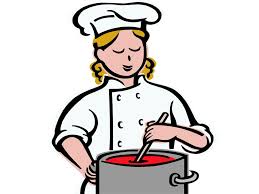记忆方法
将“cook”与“c”联想到“厨房”(kitchen)的情景。想象你在厨房里烹饪(cook),这样就可以通过图像和情境来记忆这个单词。
以上内容由AI生成, 仅供参考和借鉴
中文词源
cook 烹煮
来自PIE*pekw, 燃烧,加热,词源同kiln, cuisine, dyspeptic.
英语词源
- cook
-
cook: [OE] The noun cook is a lot more ancient than the verb, which in English was a 14thcentury development from the noun. The noun itself was borrowed in Old English times from Vulgar Latin cōcus, a descendant of classical Latin coquus. This is of Indo-European origin, and has been linked with Greek péssein ‘cook, boil’. Also from Latin coquus English gets concoct and biscuit, but cookie [18], a borrowing from Dutch koekje, is, despite its similarity, related not to cook but to cake.
=> apricot, concoct, cuisine, culinary, kiln, kitchen, pepsin, precocious - cook (n.)
- Old English coc, from Vulgar Latin cocus "cook," from Latin coquus, from coquere "to cook, prepare food, ripen, digest, turn over in the mind" from PIE root *pekw- "to cook" (cognates: Oscan popina "kitchen," Sanskrit pakvah "cooked," Greek peptein, Lithuanian kepti "to bake, roast," Old Church Slavonic pecenu "roasted," Welsh poeth "cooked, baked, hot"). Germanic languages had no one native term for all types of cooking, and borrowed the Latin word (Old Saxon kok, Old High German choh, German Koch, Swedish kock).
There is the proverb, the more cooks the worse potage. [Gascoigne, 1575]
- cook (v.)
- late 14c., from cook (n.); the figurative sense of "to manipulate, falsify, doctor" is from 1630s. Related: Cooked, cooking. To cook with gas is 1930s jive talk.
权威例句
- 1. Captain Cook safely navigated his ship without accident for 100 voyages.
- 库克船长驾驶的船安全出航100次无事故。
- 2. He said that what they were up to would cook Krasky's goose.
- 他说他们暗中进行的阴谋可能会使克拉斯基的计划流产。
- 3. Put the onions in the pan and cook until lightly browned.
- 将洋葱放入平底锅内,炒至略呈棕色。
- 4. As the egg whites cook, they coagulate and rise to the surface.
- 蛋白一煮就会凝结,并且浮起来。
- 5. Let this cook on low for another 1 hr 15 mins.
- 用小火再煮1小时15分钟。
